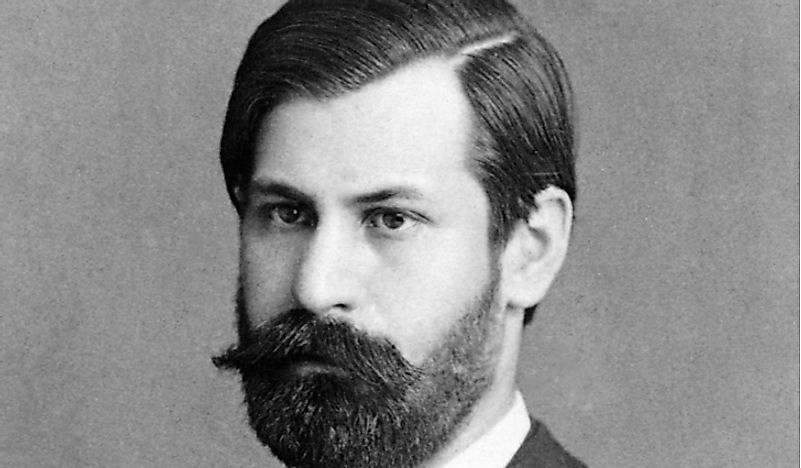Sigmund Freud – Famous Psychology

Sigmund Freud is globally regarded as the pioneer of psychoanalysis, and he made significant strides in the field of neurology, psychotherapy, psychoanalysis. Freud’s work has been extensively studied as it explored new avenues in an attempt to understand the human personality. Psychoanalysis is a clinical way for treating psychopathology through dialogue between a patient and a psychoanalyst.
5. Early Life
Freud was given the name Sigismund Schlomo Freud at birth on May 6, 1856, in Freiberg, which is now part of the Czech Republic. Freiberg at the time was part of the Austro-Hungarian Empire. His parents were Jewish, and his father worked as a wool merchant. The family settled in Vienna where Freud went to school. He exhibited high academic abilities, particularly in the fields of math, Latin, Greek, history, and science. Freud was proficient in German, French, Italian, Spanish, English, Hebrew, Latin, and Greek. He was admitted to the University of Vienna at 17 years of age to pursue medicine and graduated in 1881.
4. Career
Freud’s career began at Vienna General Hospital in 1882 where he worked in different departments. At the beginning of his career, Freud was influenced by fellow doctor Josef Breuer, who successfully treated a patient suffering from hysteria. The patient, named Bertha Pappenheim, had overcome physical symptoms through opening up about past traumatic events. This case inspired Freud to pursue psychology, and in 1895 he proposed that physical ailments are more often than not outward manifestations of deeply suppressed traumas in "Studies in Hysteria." Freud left Vienna for Paris in 1885 and studied under the tutelage of Jean Charcot, an accomplished neurologist who was undertaking research in hypnosis. On his return to Vienna the following year, Freud established a private practice and married Martha Bernays. The last of his six children, Anna Freud, also became a psychoanalyst.
3. Major Contributions
Sigmund Freud specialized in nervous and brain disorders. He realized that hypnosis was not as effective as he had hoped and thus adopted a new method, where he engaged with patients freely. He created a comfortable setting for the patient and encouraged them to talk about what was on their mind. In 1896, Freud became the first person to use the word psychoanalysis to describe his new treatment thus setting the foundation for the field. Freud published some groundbreaking theories such as “the interpretation of Dreams,” where he argued that the mind’s energy, if not discharged, would manifest in dreams. He proposed that the analysis of dreams had the potential to treat neurosis. The book also suggested that dreams had two parts: the manifest and latent content. The former was the sights and sounds while the latter referred to the dream’s hidden meaning. In his work titled “The Psychopathology of Everyday Life," he examined the dynamic unconscious. He began giving lectures at the University of Vienna in 1902 and was the major figure in the Psychoanalytic Society. Other renowned psychologists including Carl Jung were among his growing list of followers.
2. Challenges
Sigmund Freud's work was criticized as much as he was praised since he presented new methods instead of mainstream ones. Freud’s work in the fields of sexuality, particularly regarding homosexuality and infantile sexuality received the harshest criticism. When the Nazis occupied Germany in 1933, Freud’s books were among those that were burned. He sought exile in England in 1938 after the Nazis invaded Austria.
1. Death and Legacy
Sigmund Freud requested his doctor to administer him with a lethal dose of morphine after his cancer became unbearable. He had been suffering from cancer of the jaw for quite some time. He died on September 23, 1939, and his body was cremated. Freud is remembered for his significant contributions to psychology. He popularized such terms as unconscious and conscious and proposed theories to explain human personality. Freud was a pioneer in the field of psychoanalysis, and his works have been the basis for subsequent research in the discipline.











